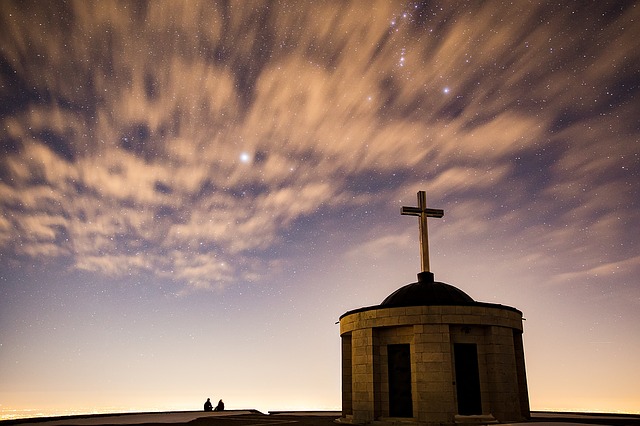
One of the first nursery rhymes my son started doing the actions to was ‘Twinkle Twinkle Little Star’. Seeing his little hands open and shut (he’s yet to learn the finer art of ‘twinkling’ his fingers), and then rise to try and form the diamond shape above his head is quite entertaining.
Two years ago, I wrote about the nursery rhyme of The Five Little Ducks and their negligent mother. Since then, and after viewing (too) many hours of The Wiggles, I’ve become familiar with many more nursery rhymes. So here I offer a very belated continuation of what will be a series of reflections on nursery rhymes and what they might offer Christians in the way of godly reflection.
The wonder of stars
Back to Twinkle, twinkle. The nursery song as we know it actually comes from an English poem called ‘The Star’, written by Jane Taylor and published in 1806.
Twinkle, Twinkle Little Star
Twinkle, twinkle, little star,
How I wonder what you are!
Up above the world so high,
Like a diamond in the sky.
Twinkle, twinkle, little star,
How I wonder what you are!
In a very simple way, these words echo the wonder which strikes as we look up at the night sky and see the multitude of twinkling lights returning our gaze. In their vast and distant array, it can make one feel rather insignificant in the scheme of things!
Twinkle twinkle, little star,
How I wonder what you are.
Surely this is the line the writers of Disney’s The Lion King had in mind, when they scripted the conversation between Timon, Pumbaa and Simba in which they tossed around their ideas of what stars are. Timon explains, matter of factly, that stars are fireflies “stuck up there on that big bluey black thing”. Simba had been taught that the stars were the great Kings of the past, looking down upon them. And the real answer, given by Pumbaa, “I always thought they were great big balls of gas burning billions of miles away” – was dismissed.
Wikipedia tells me that a star is: ‘a luminous sphere of plasma held together by its own gravity. The nearest star to Earth is the Sun.’
Stars in the Bible
Stars also rate quite a few mentions in the Bible.
Up above the world so high,
Like a diamond in the sky.
In the book of Genesis, our first introduction to stars is the fact that they are made by God.
Genesis chapter 1 verse 16 ‘And that is what happened. God made two great lights–the larger one to govern the day, and the smaller one to govern the night. He also made the stars.’
In the Psalms, it’s often pointed out that the stars are an instrument of praise to God.
Psalm chapter 148 verses 2-4, ‘Praise him, all his angels; praise him, all his armies! Praise him, sun and moon; praise him, all you shining stars. Praise him, you heaven of heavens, and you waters above the heavens.’
The star that brought people to Jesus
The beauty and wonder of the stars we see point us to the beauty, wonder, and marvelous nature of God, their Creator.
Psalm chapter 19 verse 1, ‘The heavens declare the glory of God, and the sky displays what his hands have made.’
Twinkle, twinkle, little star,
How I wonder what you are!
Possibly the most important star mentioned in the Bible is the one that appeared when Jesus was born. It was amazing and significant enough that it drew some wise men from the East to Bethlehem to worship Jesus.
The nursery rhyme is a cute few lines of wonder at the diamonds in our sky. And as a Christian, I appreciate the reminder that these twinkly lights are a wonderful reminder of something even more wonderful than the stars themselves—or rather, someone more wonderful.
I’ll leave you with my own verse to ponder:
Twinkle, twinkle, little star,
Made by God is what you are!
Set in the heavens by His own hands,
From dawn of time, by His command.
Twinkle, twinkle, little star,
Made by God is what you are!

Sarah Urmston is a follower of Jesus whose current season of life sees her fully occupied by raising two gorgeous young children with her husband Stephen. In moments when time allows for pursuits of the heart, Sarah loves to keep in touch with friends (especially thanks to Facebook), sing and play piano, and enjoy a good cup of tea.
Sarah Urmston's previous articles may be viewed at